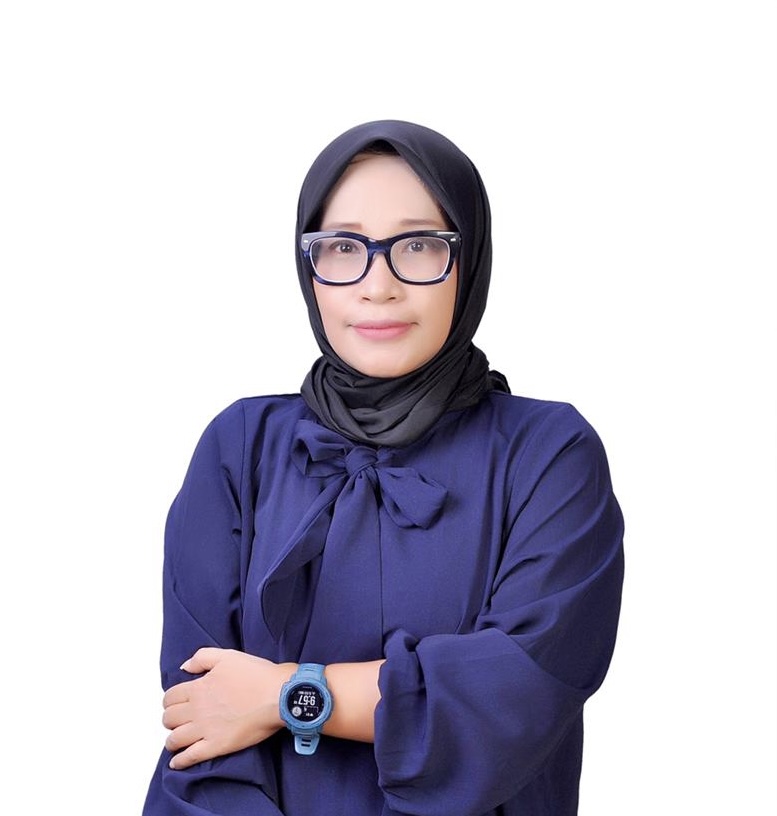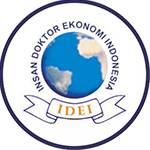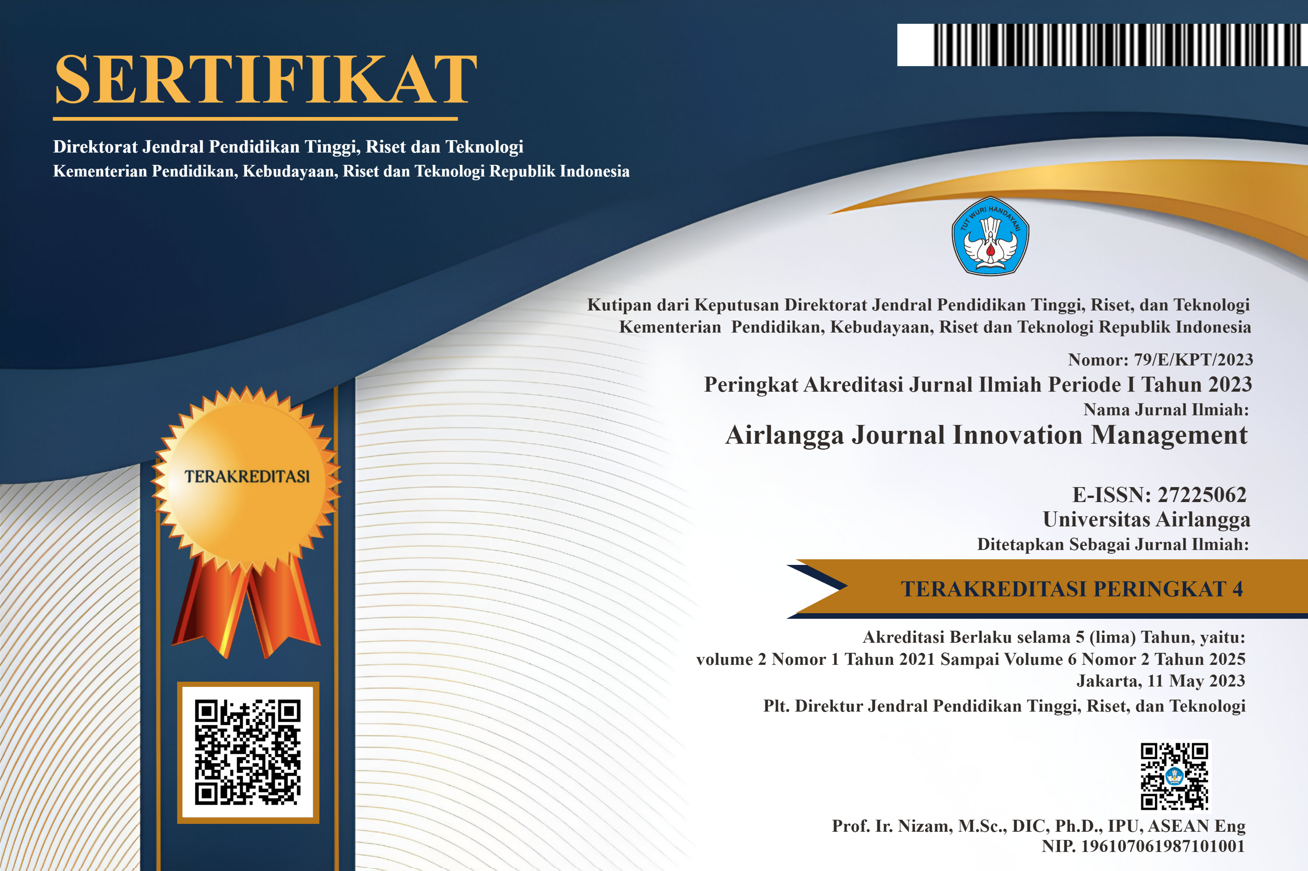The Effect of Third Party Funds, CFO, Debt Ratio on Earning Quality of Islamic Commercial Bank
Downloads
This study aims to analyze the factors that affect Earnings Quality. This research will offer a new and broader view on the factors that influence the profit quality of Islamic commercial banks in Indonesia. This research use quantitative study that uses multiple regression analysis methods. The data used is panel data from 2019-2022. The factors analyzed for their influence in this study are Third Party Funds, CFO, and DER. The model estimation used is multiple regression analysis with a quantitative descriptive method. The results of the study show that the CFO and DER have an impact on earnings quality, while, third third-party Funds do not affect Earnings Quality. These findings indicates that banks need to pay more attention to managing operating cash flow (CFO) and capital structure (DER) to improve earnings quality. Proper management of these two variables can help banks achieve more stable and transparent financial performance. Although Third Party Funds do not significantly affect earnings quality, their management is still important to maintain the stability of the bank’s liquidity. These results also suggest that investors and other stakeholders may need to focus on CFO and DER as key indicators when assessing a bank’s earnings quality.
Abduh, M., & Azmi Omar, M. (2012). Islamic banking and economic growth: the Indonesian experience. International Journal of Islamic and Middle Eastern Finance and Management, 5(1), 35–47. https://doi.org/10.1108/17538391211216811
Alma’uunah, R., & Mukaram. (2021). Pengaruh Rasio Hutang Terhadap Profitabilitas (Studi Pada Perusahaan Properti & Real Estate Terdaftar di Bursa Efek Indonesia Periode 2020). Jurnal Riset Bisnis Dan Investasi, 7(2), 80–89. https://doi.org/10.35313/jrbi.v7i2.3187
Amijaya, R. N. F., Andika Eko Prassetyo, Rensia Yuliati Pratama, & Intan Wardah Kharisma. (2023). Does Islamic Finance Matter for Poverty Development in Indonesia? Airlangga Journal of Innovation Management, 4(2), 185–197. https://doi.org/10.20473/ajim.v4i2.49756
Anisa, R. (2017). pengaruh dana pihak ketiga terhadap kualitas laba. 2588–2593.
Audio, R., & Serly, V. (2022). Pengaruh Karakteristik Dewan Direksi terhadap Kinerja Bank Syariah. Jurnal Eksplorasi Akuntansi, 4(1), 232–247. https://doi.org/10.24036/jea.v4i1.443
Baihaqy, M. H. Al. (2017). Tingkat Kesehatan Bank dan Laba pada Bank Umum Syariah Muhammad Hasbi Al Baihaqy PENDAHULUAN Salah satu sarana yang mempunyai peranan strategis dalam kegiatan perekonomian adalah perbankan . Peran strategis tersebut disebabkan oleh fungsi utama perbankan. 10(April), 79–92. https://doi.org/10.15408/akt.v10i1.6119
Beik, I. S., & Aprianti, W. N. (2016). Analisis Faktor-Faktor yang Memengaruhi Pembiayaan Bank Syariah untuk Sektor Pertanian di Indonesia. Jurnal Agro Ekonomi, 31(1), 19. https://doi.org/10.21082/jae.v31n1.2013.19-36
Biasmara, H. A., & Srijayanti, P. M. R. (2021). Mengukur Kinerja Pra Merger Tiga Bank Umum Syariah dan Pengaruhnya Terhadap Return on Asset. Moneter - Jurnal Akuntansi Dan Keuangan, 8(1), 70–78. https://doi.org/10.31294/moneter.v8i1.9977
Budiman, J. (2023). Pengaruh Karakteristik Eksekutif Terhadap Manajemen Laba. Jurnal Akuntansi, 17(2), 91–101. https://doi.org/10.37058/jak.v17i2.6742
Cedric Poretti. (n.d.). The link between corporate debt and earnings manipulation. 2020.
Christy Kurniawan, & Rosita Suryaningsih. (2017). Pengaruh Konservatisme Akuntansi , Debt To Total Assets Ratio , Likuiditas , Profitabilitas , Dan Ukuran Perusahaan. Jurnal Ekonomi, Manajemen, Akuntansi, 21(2), 163–180.
Elma, E. F., & Nuswandari, C. (2020). Faktor Faktor Yang Mempengaruhi Kualitas Laba Pada Perusahaan Manufaktur Tahun 2017-2019. Prosiding Seminar Nasional Dan Call for Paper Ekonomi Dan Bisnis, XX(October), 179–188.
Firk, S., Gehrke, Y., Richter, S., & Wolff, M. (2023). CFO Career Concerns and Strategic Decisions: An Empirical Analysis of M&As. European Accounting Review. https://doi.org/10.1080/09638180.2023.2291405
Fitri, M., & Zaimsyah, A. M. (2022). MACROECONOMIC FACTORS INFLUENCE THE DISTRIBUTION OF MSME FINANCING IN INDONESIAN ISLAMIC BANKS. Airlangga Journal of Innovation Management, 3(2), 165–174.
Ghifara, A. S., Iman, A. N., Wardhana, A. K., Rusgianto, S., & Ratnasari, R. T. (2022). The Effect of Economic Growth, Government Spending, and Human Development Index toward Inequality of Income Distribution in the Metropolitan Cities in Indonesia. Daengku: Journal of Humanities and Social Sciences Innovation, 2(4), 529–536.
Harymawan, I., Minanurohman, A., Nasih, M., Shafie, R., & Ismail, I. (2023). Chief financial officer’s educational background from reputable universities and financial reporting quality. Journal of Accounting and Organizational Change, 19(4), 566–587. https://doi.org/10.1108/JAOC-12-2021-0195
Iman, A. N., Sukmana, R., Ghifara, A. S., & Wardhana, A. K. (2022). The Effect of Zakat Collection, Company Age, and Company’s Total Assets on Financial Performance of Sharia Banking in Indonesia 2019-2020. Economic Education and Entrepreneurship Journal, 5(2), 217–224.
Irwansyah, M. R., Vijaya, D. P., & Tripalupi, L. E. (2020). Board Diversity dan Kualitas Laba: Studi pada Perusahaan Manufaktur di Indonesia. Jurnal Ilmiah Akuntansi, 5(2), 1–14.
Jiles, M. (2020). CFO Insights, Financial Reporting & Leadership Understanding Earnings Quality.
Kaban, M. B. U., & Ferby Mutia Edwy. (2024). Kualitas Laporan Keuangan: Latar Belakang Pendidikan Dan Pengalaman Internasional Cfo. Jurnal Akuntansi Trisakti, 11(1), 25–44. https://doi.org/10.25105/jat.v11i1.18806
Kim, S. (2020). Impact of Debt Financing on Accounting Transparency. Accounting Information Review, 38(1), 1–26. https://doi.org/10.29189/kaiaair.38.1.01
Kurnianto, S., & Mareta, N. G. (2023). CFO Sebagai Akuntan Profesional, Bankir, dan Kualitas Laporan Keuangan. E-Jurnal Akuntansi, 33(10), 2812–2829. https://doi.org/10.24843/eja.2023.v33.i10.p20
Laela, S. F. (2012). Jurnal Akuntansi dan Keuangan Indonesia Kualitas Laba dan Corporate Governance : Benarkah Kualitas Laba Bank Syariah Lebih Rendah dari Bank Konvensional. Jurnal Akuntansi Dan Keuangan Indonesia, 9(1), 2012.
Loestefani, V., Poan, R., Suwitorahardjo, B., & Wardhana, A. K. (2022). Service Quality and Product Quality as An Influence on Customer Loyalty at Naturalis Koffie. FIRM Journal of Management Studies, 7(2), 211–236.
Mahyudin, W. A. tira., & Rosman, R. (2022). Performance of Islamic banks based on maqāṣid al-sharīʿah: a systematic review of current research. Journal of Islamic Accounting and Business Research, 13(4), 714–735. https://doi.org/10.1108/JIABR-10-2020-0337
Maimun, dara tzahura. (2022). Prinsip Dasar Perbankan Syariah. 1(1), 125–142.
Mendo, A. Y., Singh, S. K., Yantu, I., Hinelo, R., Bokingo, A. H., Dungga, E. F., Juanna, A., Wardhana, A. K., Niroula, B., & Win, T. (2023). Entrepreneurial leadership and global management of COVID-19: A bibliometric study. F1000Research, 12(31), 31.
Napitupulu, R., Simanjuntak, T. P., Hutabarat, L., & Damanik, H. (2021). Penelitian Bisnis teknik dan analisis data dengan SPSS - STATA - EVIEWS.
Nur Handayani, D. (2020). Pengaruh Dana Pihak Ketiga, Kredit Macet dan Investasi Terhadap Laba Bersih PT. Bank Rakyat Indonesia (Persero), Tbk. Jurnal Akuntansi FE-UB, 14(2), 34.
Nurmayanti, P. (2021). KUALITAS CEO DAN MANAJEMEN LABA RIIL: APAKAH SIKLUS HIDUP PERUSAHAAN PENTING? BUKTI DARI INDONESIA. Pharmacognosy Magazine, 75(17), 399–405.
OJK. (2022). Statisik Perbankan Syariah - Otoritas Jasa Keuangan. Statisik Perbankan Syariah - Otoritas Jasa Keuangan, 2.
Pangaribuan, G. Y., & Asmalidar. (2022). Dampak Covid-19 Terhadap Dana Pihak Ketiga Pada PT Bank Sumut. Konferensi Nasional Sosial Dan Engineering Politeknik Negeri Medan, 3(1), 256–265.
Pratiwi, A. C., Wardhana, A. K., & Rusgianto, S. (2022). Application of Vector Error Correction Model on Macroeconomic Variables toward Changes in the Composite Stock Price Index. Daengku: Journal of Humanities and Social Sciences Innovation, 2(2), 219–229.
Qosim, N., Ratnasari, R. T., Wardhana, A. K., Fauziana, H., & Barkah, T. T. (2023). Eight Years of Research Related to the Green Sukuk in the Global Stock Exchange Market to Support the Implementation of SDG: A Bibliometric Review. Journal of Islamic Economic and Business Research, 3(2), 161–180.
Rahman, I., Ratnasari, R. T., & Wardhana, A. K. (2022). Effect of Certificate of Bank Indonesia Sharia and Indonesian Bank Seven Days Repository Rate to Inflation Ratio in Indonesia During Covid-19 Pandemic. Economic Education and Entrepreneurship Journal, 5(1), 157–174.
Rahmawati, D., & Aprilia, E. A. (2022). Pengaruh Pertumbuhan Laba, Kualitas Audit, Prudence, Struktur Modal, Dan Voluntary Disclosure Terhadap Kualitas Laba. Jurnal Revenue : Jurnal Ilmiah Akuntansi, 3(1), 383–394. https://doi.org/10.46306/rev.v3i1.91
Ramaadhiantix, V., Ramaadhianti, V., Septiwidya, W., Wanda Salsabila, A., Dwi Septianay, A., Yulaeli, T., Fakultas Ekonomi dan Bisnis, M., & Akuntansi, P. (2023). Faktor-Faktor Yang Mempengaruhi Current Ratio, Debt Equity Ratio, Debt Asset Ratio, Dan Perputaran Modal Kerja Terhadap Return On Asset. Student Scientific Creativity Journal (SSCJ), 1(5), 168–190.
Ramadhan, G., Suci, N., & Murni, I. M. (2023). Companies Listed On The Indonesian Stock Exchange In 2018-2021 Pengaruh Rasio CR , DER , ROA Dan FATO Terhadap Kualitas Laba Pada Perusahaan Subsektor Jasa Yang Terdaftar Dalam Bursa Efek Indonesia Tahun 2018-2021. 4(5), 5405–5415.
Rohman, M. A. N., & Yanti, H. B. (2022). Pengaruh Kolektibilitas, Likuiditas, Dan Dana Pihak Ketiga Terhadap Profitabilitas Dengan Restrukturisasi Kredit Sebagai Variabel Moderasi Di Sektor Perbankan. Jurnal Ekonomi Trisakti, 2(2), 1343–1356. https://doi.org/10.25105/jet.v2i2.15004
Roni, H. M. A. H., & Dewi, I. R. (2015). Pengaruh Debt To Equity Ratio (DER) Dan Debt To Asset Ratio (DAR) Terhadap Profitabilitas Yang Diukur Dengan Return on Total Assets (ROA) Pada PT Energi Mega Persada Tbk Periode 2010-2014. Business and Management Inaba, 12(2), 31–45.
Ryandono, M. N. H., Mawardi, I., Rani, L. N., Widiastuti, T., Ratnasari, R. T., & Wardhana, A. K. (2022). Trends of research topics related to Halal meat as a commodity between Scopus and Web of Science: A systematic review. F1000Research, 11(1562), 1562.
Ryandono, M. N. H., Permatasari, S. A., & Wijayanti, I. (2019). Business behavior in an islamic perspective: Case study of muslim woman entrepreneurs in Ikatan Wanita Pengusaha Indonesia (IWAPI). 12th International Conference on Business and Management Research (ICBMR 2018), 154–159.
Ryandono, M. N. H., Wijayanti, I., & Kusuma, K. A. (2020). Determinants of Investment In Islamic Crowdfunding. Muqtasid: Jurnal Ekonomi Dan Perbankan Syariah, 11(1), 70–87.
Salim, U. H. (2017). Pengaruh Dana Pihak Ketiga terhadap Laba pada PT. Bank UOB Indonesia di Samarinda. Research Journal of Accounting and Business Management (RJABM), 1(2), 200–212.
Schmid, S., & Altfeld, F. (2018). International work experience and compensation: Is more always better for CFOs? European Management Journal, 36(4), 530–543. https://doi.org/10.1016/j.emj.2017.11.001
State of the Global Islamic Economy Report. (2023). State of the Global Islamic Economy Report. In DinarStandard.
Sudirgo, T., Bangun, N., Yuniarwati, D., & Studi Akuntansi Fakultas Ekonomi Dan, P. (2021). Faktor Yang Mempengaruhi Kualitas Laba Pada Perusahaan Manufaktur Di Indonesia. Business Management Journal, 17(1), 39–55.
Syarofi, M., & Putri, L. (2023). Peran Penting Dewan Pengawas Syariah Untuk Lembaga Keuangan Berbasis Syariah. Airlangga Journal of Innovation Management, 4(1), 74–83. https://doi.org/10.20473/ajim.v4i1.45357
Wardhana, A. K. (2021). The Application of Waqf and Endowment Fund Based on the Principles in the Sharia Maqashid Pillar Society. Prosperity: Journal of Society and Empowerment, 1(2), 107–119. https://doi.org/10.21580/prosperity.2021.1.2.8829
Wardhana, A. K. (2022). JANJI (WA’AD) SEBAGAI JARING PENGAMAN PADA TRANSAKSI KEUANGAN DAN BISNIS SYARIAH. Jurnal Keislaman, 5(1), 124–132. https://doi.org/https://doi.org/10.54298/jk.v5i1.3412
Wardhana, A. K., & Ratnasari, R. T. (2022). Impact of Agricultural Land and the Output of Agricultural Products Moderated with Internet Users toward the Total export of Agricultural Product in Three Islamic South East Asian Countries. Iqtishodia: Jurnal Ekonomi Syariah, 7(2), 11–20.
Wardhana, A. K., Ratnasari, R. T., & Fauziana, H. (n.d.). ISLAMIC INVESTMENT IN INDONESIA BEFORE AND DURING PANDEMIC OF COVID-19: A BIBLIOMETRIC STUDY INVESTASI SYARIAH DI INDONESIA SEBELUM DAN SELAMA PANDEMI COVID-19: STUDI BIBLIOMETRIK.
Wijayanti, I. (n.d.). Analisis Penerapan Qawaid Fiqiyyah Terhadap Kebijakan Belanja Pegawai Pemerintah Dalam Pelaksanaan APBN Di Indonesia. BOOK-5: EKONOMI ISLAM, 941.
Wijayanti, I., Herianingrum, S., & Ryandono, M. N. H. (2020). Islamic Crowdfunding Mechanism to Answer Renewable Energy Investment Challenge in Indonesia. Test Engineering and Management, 83, 3596–3605.
Yunus, Y. A. (2021). Comparison of Sharia Stock Prices and Trading Volumes Before and During COVID-19. Golden Ratio of Finance Management, 1(1), 13–24.
Yuszak. (n.d.). Peran CFO dalam Pertumbuhan Perusahaan.
Zulaikha, S., Hendratmi, A., Sridadi, A. R., Basit, A., Iman, A. N., Wardhana, A. K., Ghifara, A. S., Pratiwi, A. C., Febriyanti, A. R., & Nugroho, A. D. (n.d.). FILSAFAT EKONOMI ISLAM Menjawab Tantangan Peradaban. Zifatama Jawara.
Copyright (c) 2024 Airlangga Journal of Innovation Management

This work is licensed under a Creative Commons Attribution-NonCommercial-ShareAlike 4.0 International License.
- The journal allows authors to hold copyright without restrictions and retain publication rights without restrictions. The author retains the copyright and grants the first publication rights to the journal, with his work simultaneously licensed under the Creative Commons Attribution-NonCommercial-ShareAlike 4.0 International License (CC BY-NC-SA). This license allows others to share the work with acknowledgment of authorship and initial publication in this journal, provided that the work is not used for commercial purposes and that any derivative works must use the same license.
- Authors may enter into additional contractual agreements for non-exclusive distribution of the journal publication version (e.g., uploading it to an institutional repository or publishing it in book form), while still including acknowledgment of the initial publication in this journal.
- Authors are allowed and encouraged to upload their work online (e.g., in an institutional repository or personal website) before and during the submission process. This can support productive scientific exchanges as well as increase citations to published works.

AJIM by UNAIR is licensed under a Creative Commons Attribution-NonCommercial-ShareAlike 4.0 International License.





















